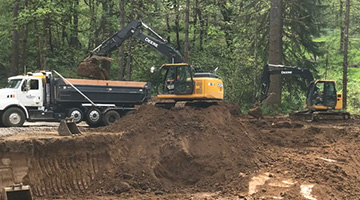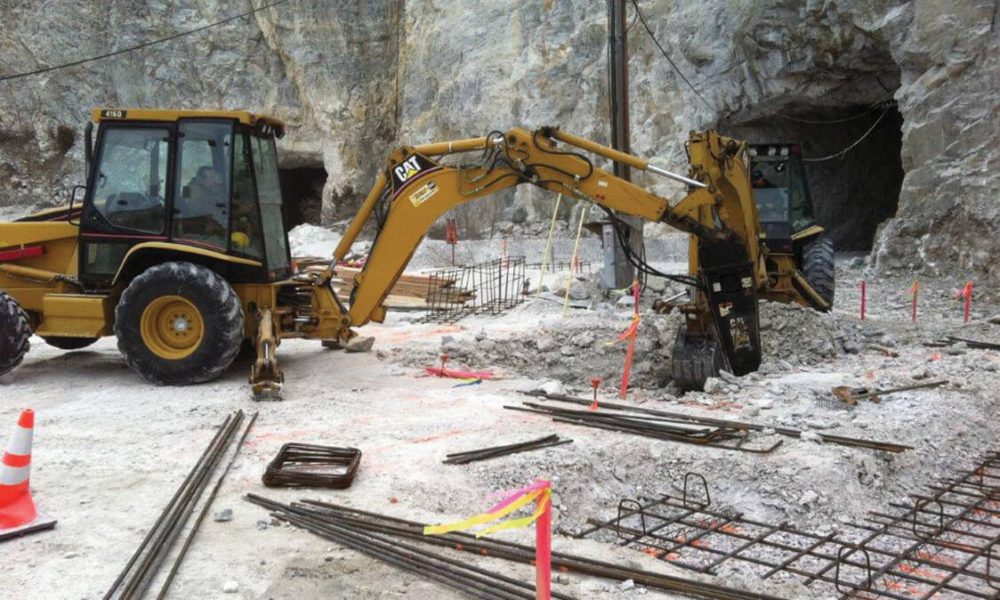Septic Ohio - Comprehensive Septic Tank Services in Ohio
Septic Ohio - Comprehensive Septic Tank Services in Ohio
Blog Article
Comprehensive Excavation Methods: Grasping the Principles for Success
The mindful preparation, exact execution, and meticulous attention to detail needed in excavation jobs require a comprehensive approach that incorporates different fundamental elements. The true proficiency exists not merely in comprehending these principles yet in effortlessly incorporating them to browse the complexities of excavation tasks with skill.
Understanding Excavation Job Preparation

The initial phase of any excavation project is the planning stage, where critical decisions are made that can substantially affect the end result of the project. Recognizing the project spending plan, timeline, and scope restraints is crucial for producing a comprehensive excavation strategy that guarantees the task's success.
One trick facet of excavation job planning is the advancement of an in-depth timeline that outlines the sequence of milestones, target dates, and tasks. This timeline functions as a roadmap for the project group, permitting them to track progression and make required adjustments to make sure the task remains on routine. Additionally, a well-defined budget plan that makes up all expenditures, consisting of equipment rental, labor prices, and materials, is crucial for avoiding price overruns and delays. By meticulously considering all these factors during the drawing board, excavation projects can be carried out efficiently and successfully, leading to successful outcomes.
Soil Analysis and Website Assessment
Performing comprehensive dirt analysis and site analysis is an essential action in the preparation phase of any excavation task. Dirt analysis includes determining the make-up, framework, and buildings of the dirt at the excavation site. This info is essential for recognizing the soil's bearing capacity, moisture material, and capacity for disintegration, which are vital aspects in identifying the excavation approaches and devices required for the project.
Site assessment surpasses soil analysis and includes a more comprehensive analysis of the general site conditions. This analysis includes identifying any kind of possible hazards, such as underground energies, ecological issues, or unsteady terrain, that could influence the excavation process. By completely examining the website, task managers can establish reliable excavation techniques that focus on security, efficiency, and environmental management.
Using innovative technologies like ground-penetrating radar, soil tasting, and drone surveys can improve the accuracy and efficiency of dirt evaluation and website evaluation. Spending time and sources in these preliminary actions can eventually conserve time and protect against expensive delays or complications during the excavation procedure.
Equipment Choice and Usage
Reliable excavation projects depend greatly on calculated tools choice and utilization to ensure optimum performance and productivity. Choosing the appropriate tools for the task is essential in optimizing efficiency and lessening downtime. Aspects such as the sort of dirt, depth of excavation, and job extent play a considerable role in establishing one of the most appropriate tools for the task handy.

Along with selecting the proper equipment, appropriate usage is key to job success. Operators should be trained to deal with the devices safely and successfully - dump truck companies in ohio. Normal upkeep checks and prompt repairs help prevent breakdowns and ensure consistent performance throughout the project
Precaution and Rules Compliance
In the world of excavation jobs, prioritizing safety measures and conformity with policies is vital to guaranteeing a legitimately audio and safe and secure functional atmosphere. Precaution encompass a variety of practices, consisting of carrying out thorough website evaluations, implementing correct signage and barriers, and offering sufficient safety and security training for all employees associated with the excavation process. Adherence to laws, such as OSHA demands in the United States, ensures that the excavation task satisfies the essential requirements to protect workers, bystanders, and the surrounding atmosphere.

Surveillance Development and Adjusting Methods
Exactly how can predict managers efficiently track the development of excavation tasks and adapt their methods accordingly to enhance results? Monitoring development is important for making sure that excavation projects remain on track and fulfill due dates.

Verdict
To conclude, understanding the basics of extensive excavation approaches is necessary for the success of any kind of project. By recognizing project preparation, evaluating soil and website problems, choosing suitable devices, adhering to safety laws, and checking development, task managers can make certain a smooth and reliable excavation procedure. Implementing these approaches will certainly cause successful end results and reduce possible dangers or problems throughout the excavation project.
The preliminary stage of any type of excavation job is the planning phase, where crucial choices are made that can significantly affect the result of the project. Comprehending the task budget plan, range, and timeline restrictions is critical for creating an extensive excavation strategy that makes sure the project's success.
Just how can project managers properly track the advancement of excavation jobs and adjust their approaches as necessary to optimize outcomes? By closely monitoring progress and being prepared to adjust techniques, job managers can boost the overall success of excavation projects.
By recognizing task preparation, evaluating dirt and website conditions, choosing appropriate equipment, complying with safety and security policies, and checking progress, project managers can ensure a smooth and reliable excavation procedure.
Report this page